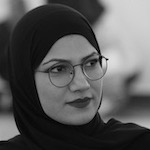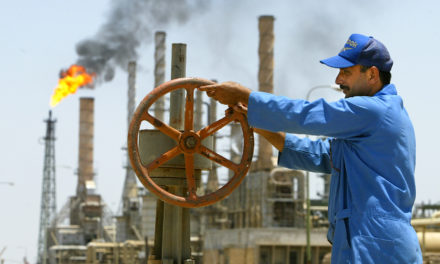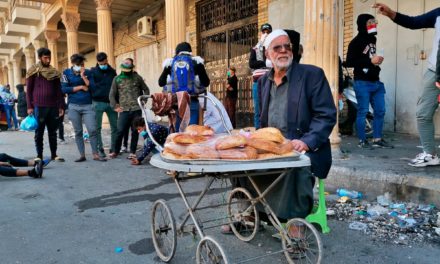The fall of Saddam Hussein’s Ba’athist regime in 2003 marked a turning point for Iraq, igniting a wave of transformative change. As the nation embarked on the challenging journey to establish a new political order, the spotlight shifted to rectifying historical injustices, particularly in the realm of gender equality. The unfolding narrative weaves through legislative reforms, societal challenges, and tireless efforts by advocates and policymakers.
The pivotal moment came in 2005 with the drafting of a constitution boldly affirming the equal standing of all citizens before the law, dismantling barriers to women’s political participation. A ground-breaking move that same year introduced a quota system, reserving a minimum of 25% of seats in the Iraqi Council of Representatives for women. This seismic shift propelled women into influential political roles, breaking the chains of historical underrepresentation.
Fast forward to October 10, 2021, elections marked a significant achievement for Iraqi women, securing 95 seats out of 329—an increase from the minimum 25% in 2018 to 29%. UNAMI‘s analysis underscores tangible progress in advancing gender equality in the political sphere.
The success can be credited to Election Law No. 9 of 2020, introducing a multiple-district system and mandatory inclusion of at least one woman in each district. However, challenges persist in the flawed selection process within political parties, often resulting in women chosen solely to fill quotas, disregarding their qualifications. Consequently, female representatives may lack decision-making power, hindering their ability to shape policies effectively.
In 2020, Iraq ranked 70th globally in terms of the percentage of women’s participation in parliament, with women occupying 84 out of 329 seats in the Council of Representatives, equivalent to 25.5% of the seats. This percentage stood at 16.6% in the Arab region and 24.9% worldwide, according to ESCWA’s report.
A closer examination of parliamentary representation in Iraq reveals four cycles that followed the adoption of the quota law. In the first cycle, from 2006 to 2010, women won a total of 78 seats in a 275-seat legislature, and 21 of these were won without the quota kicking in. In the second cycle (2010-2014), women won a total of 81 seats in a 325-seat legislature, and 15 of those seats were won without the quota. In the third cycle (2014-2018), women won a total of 83 seats in a 328-seat legislature, and 20 of those were won without the need for a quota. In the fourth cycle (2018-2021), women won 84 seats in a 329-seat legislature, and 22 of those seats were won without the need for the quota. Finally, in the most recent parliamentary cycle following the 2021 election, women won 95 seats out of a 329-seat legislature, and 57 of those seats were won without the need for a quota (this is prior to the Sadrist withdrawal from parliament). These figures underscore the efficacy of quotas in supporting women in legislative elections, as outlined in ESCWA’s report.
The journey for women in Iraqi politics faces multiple challenges rooted in societal norms, historical contexts, and ongoing geopolitical realities. Security concerns, cultural norms emphasizing traditional gender roles, and electronic blackmail leveraging digital platforms further complicate the landscape. These evolving obstacles demand nuanced solutions and heightened awareness.
While the quota system has amplified women’s representation in parliament, challenges persist in ensuring their genuine decision-making power. Limited access to resources, including financial support and media coverage, impedes effective political campaigns. Despite securing parliamentary seats, women often grapple with underrepresentation in leadership roles, constraining their influence in shaping policies.
Discrimination and stereotyping subject women in politics to bias and unfair scrutiny. Limited civic education and awareness hinder women’s active participation, emphasizing the need for robust educational initiatives. Inadequate legal protections underscore the necessity for comprehensive frameworks ensuring gender equality in the political sphere. A holistic approach is imperative to foster genuine gender inclusivity in Iraqi politics.
The lead-up to the provincial council elections on December 18, 2023, saw traditional political parties in Iraq adopting a new strategy, integrating new faces, particularly women, into their candidate lists. However, this shift seemed more about securing existing positions than genuinely representing diverse perspectives. Concerns arise about the parties’ commitment to authentic democratic principles and the genuine interests of the electorate.
The participation rate in these elections reached 41%, equivalent to 6.6 million voters out of 16.1 million eligible to vote, according to official figures announced by the Independent High Electoral Commission (IHEC).
The decline in voter turnout had adverse effects on male candidates and further undermined the position of female candidates. It seems that the persistent lack of trust between voters and candidates remains unaddressed. This emerges as a crucial strategy for traditional and dominant parties seeking to secure their longevity.
The media plays a pivotal role in shaping public perceptions of women in Iraqi politics. The positive or negative framing of stories, focus on policy contributions versus personal attributes, and the visibility of women as role models impact how the public views women in political roles. Balancing and sensitive reporting, along with efforts to challenge stereotypes, are essential for fostering a more inclusive narrative.
Anticipated changes in women’s political representation in Iraq encompass continued advocacy efforts, the implementation of existing policies, potential legislative reforms, the emergence of more women leaders, international collaboration, the impact of technology and social media, increased youth engagement, addressing gender-based violence, and efforts to enhance public awareness and education.
While progress is expected, challenges such as societal norms and political instability may influence the pace and nature of these changes. Active involvement from various stakeholders, including government institutions, civil society, and the international community, will play a crucial role in shaping the future of women’s political representation in Iraq.
The journey toward empowering women in Iraqi politics demands persistent commitment and collective action. A call to action is imperative, urging continued advocacy for the effective implementation of existing policies, the introduction of legislative reforms, and the removal of systemic barriers hindering women’s political participation. Initiatives aimed at addressing gender-based violence, ensuring the safety of women in politics, and enhancing public awareness and education on the importance of gender diversity in governance are equally vital. As we reflect on the path forward, let us acknowledge that the empowerment of women in Iraqi politics is not only a matter of justice but also a prerequisite for a truly inclusive and representative democracy. Each proactive step taken today contributes to a future where the voices and contributions of women play a central role in shaping Iraq’s political landscape.
According to Dhay Ghani, a female political activist, there is still a long way to go before women become a proper part of the political system. In her view, “Women face a complex web of challenges – from the internalized inferiority complex to the looming threat of electronic blackmail. To empower women authentically, we must dismantle stereotypes, address systemic flaws, and channel resources effectively.”
In recent years there have been several stories of activist women being harassed in order to silence them or prevent them from participating in politics. But every year more progress is being made and women’s voices are growing louder. As Ghani puts it, “The journey is arduous, but each step taken today contributes to a future where women shape Iraq’s political landscape.”
This essay is part of a special series – Empowering Change in Iraq: Policy Recommendations for a New Era

Raghad Kasim
Raghad Kasim is an Iraq based researcher and activist.










